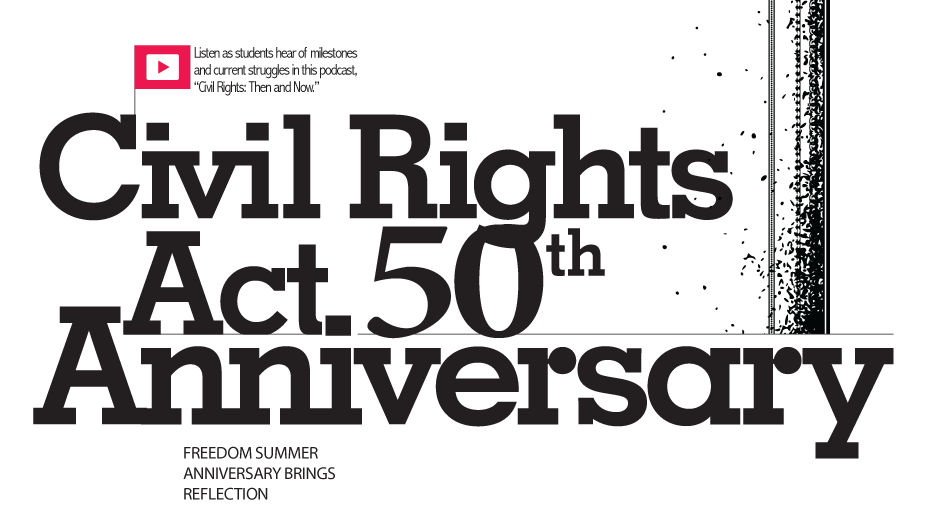



The Rev. Gilbert H. Caldwell (right) stands with the Revs. Martin Luther King Jr. (left) and Virgil Wood on the roof of a Boston public school in 1965.
COURTESY GILBERT H. CALDWELL

The Rev. Gilbert H. Caldwell (right) stands with the Revs. Martin Luther King Jr. (left) and Virgil Wood on the roof of a Boston public school in 1965.
COURTESY GILBERT H. CALDWELL
July 2 marks the 50th anniversary of President Lyndon B. Johnson’s signing of the Civil Rights Act of 1964, landmark legislation that outlawed discrimination based on race, color, religion, sex or national origin, unequal application of voter registration requirements and racial segregation in schools, the workplace and facilities that serve the general public.
The signing and passage came in the midst of Freedom Summer, the Student Non-Violent Coordinating Committee’s voter registration drive in Mississippi. It was a summer when three Freedom Summer workers were murdered and acts of violence occurred in many places in the United States. At the same time, black and white Methodists and members of the Evangelical United Brethren Church were working alongside many others to keep the efforts for change and responses to them non-violent.
To commemorate the 50th anniversary, Interpreter invited six United Methodists involved in the struggle for civil rights to share their reflections. Read more of their thoughts at Interpreter OnLine (www.interpretermagazine.org) and UMC.org.